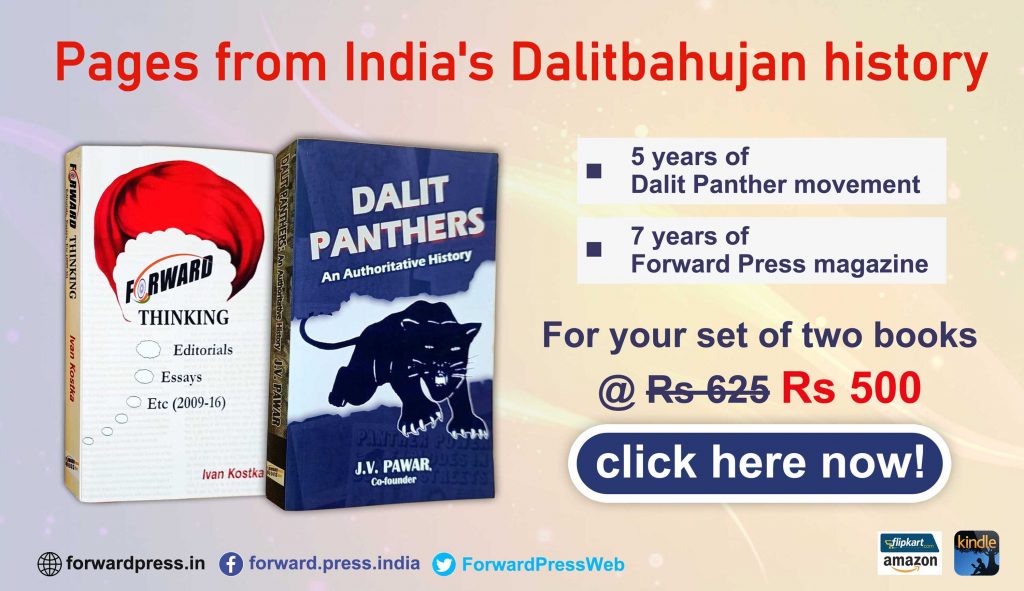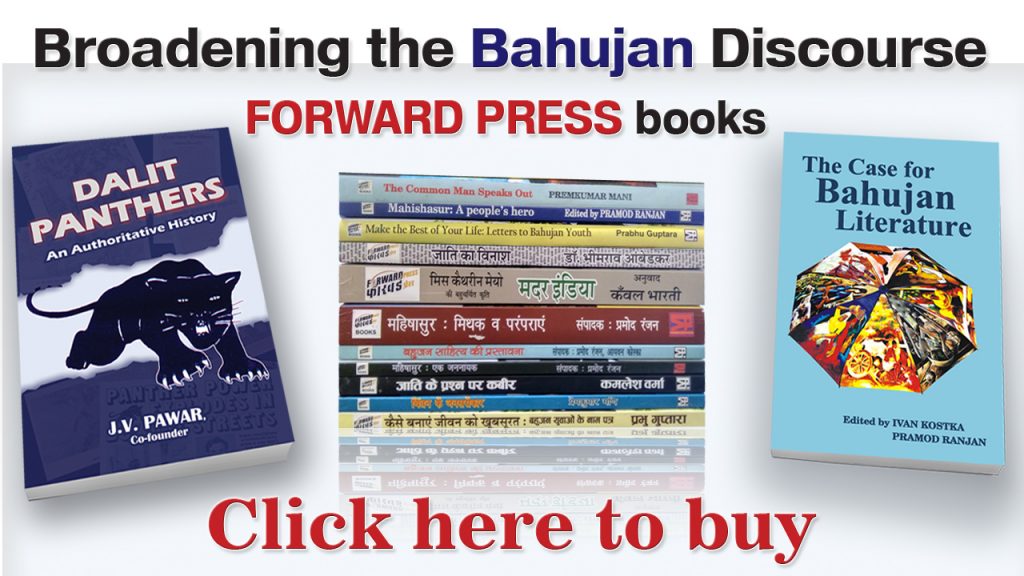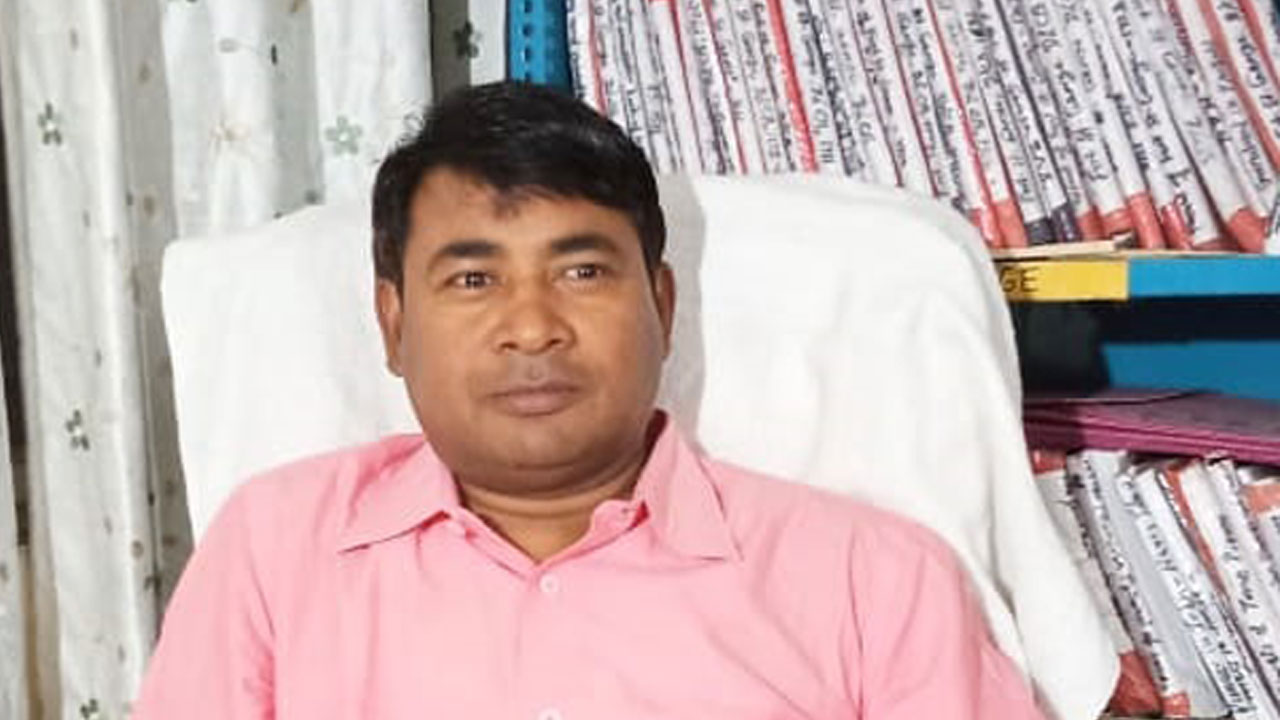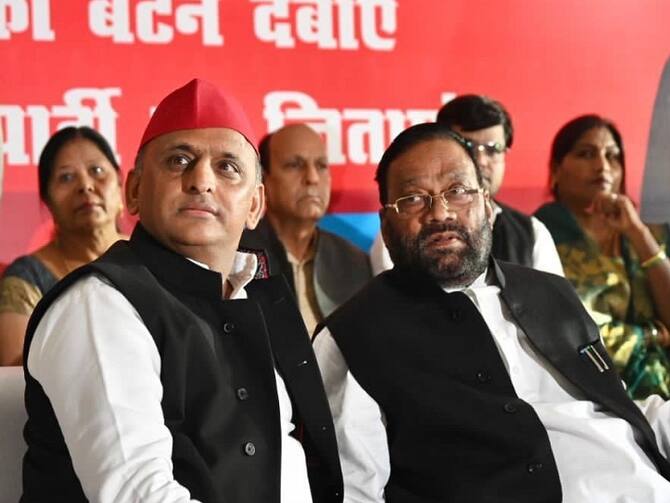The pre-election ferment in the Uttar Pradesh politics has triggered all kinds of conjectures and claims. Many Dalit-OBC ministers, MLAs and leaders of the BJP have jumped on the Samajwadi Party (SP) bandwagon. What are the implications of these defections? Prof Sanjay Kumar, psephologist and director of Centre for the Study of Developing Societies (CSDS), spoke with FORWARD Press’ Hindi editor Nawal Kishore Kumar on these developments. Here’s the first part of the interview:
What initially seemed to be a multipolar contest is fast assuming the form of a two-horse race. What is your first reaction to the recent developments in Uttar Pradesh?
There are many parties in the fray in Uttar Pradesh. They include Samajwadi Party (SP), Bharatiya Janata Party (BJP), Congress, Bahujan Samaj Party (BSP) and All-India Majlis-e-Ittehadul Mulslimeen (AIMIM). Then there are several other regional parties such as the Rashtriya Lok Dal (RLD) and Om Prakash Rajbhar’s Suheldev Bhartiya Samaj Party. Some parties have forged alliances with the SP; others have become a part of the BJP coalition. Congress is also in the field, ploughing a lonely furrow. The BSP is also girding its loins and has decided to go it alone. The BSP has announced several of its candidates. Thus, broadly speaking, we have the SP alliance, the BJP alliance, the BSP and the Congress vying for power in the state. This means a four-cornered contest. But the way things are shaping up, it appears that the real contest will be between the BJP alliance and the SP alliance. With each passing day, other parties are getting squeezed out of the race. Until about a month and a half ago, it appeared that the BJP alliance was leading and the SP alliance was in the second spot. Some people thought that the BSP would have a meaningful role to play. But now, from the way the BJP defectors are making a beeline for the SP, it is more than clear that in popular perception SP is the only party that can pose a credible challenge to the BJP. The contest in Uttar Pradesh is clearly bipolar.
You have been saying that only those who talk of the interests of the Backwards will rule this country. Do you think issues like insincere implementation of the reservation regime and caste census will be decisive in these elections? After all, all those who have quit the BJP to join the SP have accused the Adityanath government of having betrayed the interests of the Dalits and the OBCs.
It is often said that societal changes are cyclical. Things return to where they had begun. Let us go back to the political scenario in the Hindi-speaking states, especially Bihar and Uttar Pradesh, in the 1970s and the 1980s. The upper castes were dominant. The proportion of the OBCs in the total population was the same as it is now. The percentage of Dalit voters was the same as it is now. There has been no major demographic shift since then. The OBCs were 50-52 per cent of the population then and so they are now. But at that time they were on the margins – socially and even more so politically. The election machinery was controlled by the upper castes. Politics was dominated by the upper castes. Politics revolved around Brahmins, Bhumihars and Rajputs. Their influence on society and politics was vastly disproportionate to their numbers. Things began changing, slowly and steadily. Come the 1990s, which we call the “Post-Mandal age”. V.P. Singh formed his government. He decided to implement the report of the Mandal Commission. That brought about reservations for the OBCs in jobs under the union government and in central educational institutions. This impacted politics, especially in the twin states of Bihar and Uttar Pradesh. The 1990s, the era of post-Mandal politics, witnessed the rise of new parties which had development and progress of the OBCs as their declared objectives. It is not that the parties dedicated to the OBCs didn’t exist earlier. They did. But they were very small and their zone of influence was smaller still. At the time, the Janata Dal was the only such big outfit. Later, it got fragmented and as a result the Janata Dal (United) and the Rashtriya Janata Dal (RJD) emerged in Bihar and the SP and the BSP in Uttar Pradesh. That was the post-Mandal era. From 1996 to 2009, the OBCs dominated the political scene in north India, especially in Uttar Pradesh and Bihar. That made the SP and the BSP the key players in Uttar Pradesh. The BJP came to power in the interregnum but it, too, chose Kalyan Singh to head its government. It did not keep the OBCs on the margins. It brought OBC leaders centre stage. That phase still continues in Bihar, where the OBCs are still influential. The BJP came to power nationally in 2014. From then till 2019, it indulged in social engineering, which involved giving preference to OBC leaders. The party knew that if it had to win elections, it had to win over the OBC voters. However, once the BJP had a firm grip on Uttar Pradesh politics it forgot what had enabled it to gain a foothold in the first place. The non-Yadav OBC voters were behind its electoral successes. I feel that the BJP committed a mistake in forgetting the voters who had propelled its spectacular success in the state. I’m not making the case that the upper castes did not vote for the BJP. The fact is that the BJP’s share of the upper-caste votes was higher than of the Extremely Backward Castes (EBC) votes. In 2017 and 2019 elections, the BJP garnered 75-80 per cent of the upper-caste votes. They included Brahmins, Rajputs and others. Their share of EBC votes was 60-70 per cent. But in numerical terms, the scenario was different. If you get 60-70 per cent votes of communities which form 35 per cent of the total population, it makes a lot of difference. The EBCs contributed significantly to the BJP’s victory. But in 2017, I feel the BJP committed a big mistake. Their pick for the chief minister was a person who did not come from these communities. Not only was he not from these communities but also he had no sympathy for them. At least that is the conclusion one can draw from what happened under his watch and the kind of allegations that have been levelled against him. This was a major folly. During the past five years, the OBC leaders in the BJP have felt that they were ignored, sidelined and humiliated. It’s primarily because of the five-year rule of Yogi Adityanath, during which the upper castes were perceived to have had an upper hand that the OBCs are again uniting against the BJP. Things have thus come full circle – from upper-caste domination to OBC domination and then again upper-caste domination, at least in Uttar Pradesh and within the BJP. Even among the upper castes, certain castes ruled the roost. That’s why, the OBC leaders, who had almost become a part of the BJP, got disillusioned with the party. What has been happening in the state for the past few days shows that the OBCs are again coming together to oppose the BJP. They are repeatedly asserting that the BJP is dominated by the upper castes and that during its rule, the OBC leaders have been ignored. I have said this earlier and I wish to repeat that if any party has to remain in power in UP, it simply cannot ignore the interests of such a big chunk of the people – the OBCs. This is self-evident. The BJP could register a scintillating win because it managed to draw the OBCs to its fold. And if the BJP seems to be in trouble now, it is because the OBC leaders are deserting it. The Congress is in deeper water because the OBCs, the Dalits, the Muslims – all have deserted it. The only base it can boast of in Uttar Pradesh and Bihar is its traditional upper-caste voters. OBC leaders quitting the party can be interpreted as a sign that the OBC voters are distancing themselves from the BJP. The BJP should tread cautiously in Bihar. Both its deputy chief ministers in Bihar are from Dalit and the OBC communities. If the party replicates the Uttar Pradesh experiment in Bihar, it will face the same predicament. The BJP was trying to reduce the OBCs to non-Yadav OBCs and Dalits to non-Jatav/Chamar Dalits. That’s why it had appointed the Rohini Commission. But what happened that even the EBCs are bidding goodbye to the BJP?
The desertions from the BJP provide enough indications. Why the BJP did what it did is very clear. They knew that the Yadavs were overwhelmingly with the SP and it would take a lot of work to wean the Yadavs away from the SP. The non-Yadav voters could be won over with much less effort. That is because there was a feeling among them that the SP won elections in the name of the OBCs, but the cream went to the Yadavs and the other OBCs had to remain content with crumbs. The BJP deftly exploited this feeling among the non-Yadav OBCs. It identified leaders of these communities and brought them to its side. These leaders were hopeful that they would gain by aligning themselves with the BJP. They believed that the SP was basically a party of the Yadavs. It represented the Yadavs and it was the Yadavs to whom all benefits went under the SP dispensation. But during the five years of the BJP rule, they got nothing. On the contrary, they were ignored. They felt that they would have been better off had they continued their association with the SP. Currently, a war of words is underway between the two sides. The BJP says that the defectors wanted tickets for themselves and for their relatives and when they felt that the party wouldn’t oblige them, they decided to walk out. The defector OBC leaders, on the other hand, say that they tried very hard to put the demands of their respective communities before the government but the chief minister would not listen to them. All kinds of charges and counter-charges are flying thick and fast. Even if all these allegations and counter-allegations are treated as half-truths, what emerges is that the OBC leaders in the BJP, even those who were occupying ministerial positions, were disappointed that the upper-caste ministers mattered more than others. So, this feeling stuck. They felt that they were being ignored and sidelined, that no one was ready to pay heed to them. That’s why they are walking out from the party. The point is not that nothing was done. The point is that nothing was seen to be done. They felt that they had got nothing in the SP rule and they now have got nothing in the BJP rule. But when they were with the SP, they at least had their self-respect – hence this exodus.

Recently, Swami Prasad Maurya has come out with a new narrative. He said that ‘85 is ours but we have a share in the remaining 15, too.’ When he talks of ‘share in the 15, too’, we are reminded of the Brahmins. It is being said that the Brahmins are also disillusioned with the BJP. Your take?
Yes, there are reports that the Brahmins, too, are disillusioned. My point is that when the BJP formed its government it made the mistake of appointing a person who did not represent the Backwards as the chief minister. They probably went for someone who had the image of a bold and decisive leader. But the way things unfolded during the BJP rule, the way the administration behaved, the Brahmins felt that even among the upper castes, only a particular caste was receiving all kinds of benefits and the others were being ignored. Whenever there was a choice between the Brahmins and the Rajputs, the latter were preferred. This is why Brahmins, too, seem to be resentful. There are indications, reports to this effect. But I still think that the Brahmins are not so angry as to vote en masse for the Congress or the SP or the BSP. They are of course angry and this will erode their support to the BJP to some extent but it will not cause substantial damage to the BJP. In fact, the way the OBCs are rallying around the SP, it may bring the Brahmins close to the BJP. The situation is different from what it was two months ago. The Brahmins are angry but not to the extent that they will come together and vote to defeat the BJP or that they will oppose the BJP openly. Some Brahmin votes may go to the other parties. The SP may field Brahmins who are popular. But all said and done, the Brahmins will back the BJP. Some Brahmin leaders may decide not to campaign but I do not envisage a scenario where the Brahmins are so angry that they will vote for any party except the BJP.
The Congress has announced that 40 per cent of its nominees will be women. You have always been saying that the voting pattern of women is important in any election. Do you think this move will influence the women voters?
See, as a concept this is very good. No party can oppose it. No party can say that this is wrong. No party can even say what the Congress is doing should not have been done or that it is politically motivated. This is indeed a very good move. But will this improve the performance of the party? The possibility of the Congress coming anywhere close to power is not even worth discussing. I feel that the people will appreciate the move. They will think that this is something which should be done. Women voters will feel that there is a party which is thinking about them. But the point is that to make any such move work in their favour, the party should have a popular base. If the Congress had the support of 18-20 per cent voters, this move could have swung an additional 4-5 per cent voters towards it. This could definitely have been the icing on the cake. But when there is no cake, what is the use of the icing? What will you put the icing on? Icing alone does not have any taste. No one likes to waste his or her vote. The voter may wish well for the party. Yes, this is a good move, yes this is a good party. But nothing more. Sometimes a thorough gentleman, a very nice person, contests an election. He or she may be independent or may be the candidate of a party. People heap praises on such a candidate. But they know that the person won’t win. So, they vote for another party that they want to see in power. This is the situation with the Congress. The issue is great. The women voters will appreciate it. But that won’t translate into votes. People may say that well, if the party is in the reckoning next time, we will vote for it. I don’t think the Congress’ performance will be anything to write home about.
(Translation: Amrish Herdenia; copy-editing: Anil)
Forward Press also publishes books on Bahujan issues. Forward Press Books sheds light on the widespread problems as well as the finer aspects of Bahujan (Dalit, OBC, Adivasi, Nomadic, Pasmanda) society, culture, literature and politics. Contact us for a list of FP Books’ titles and to order. Mobile: +917827427311, Email: info@forwardmagazine.in)
The titles from Forward Press Books are also available on Kindle and these e-books cost less than their print versions. Browse and buy:
The Case for Bahujan Literature
Dalit Panthers: An Authoritative History







